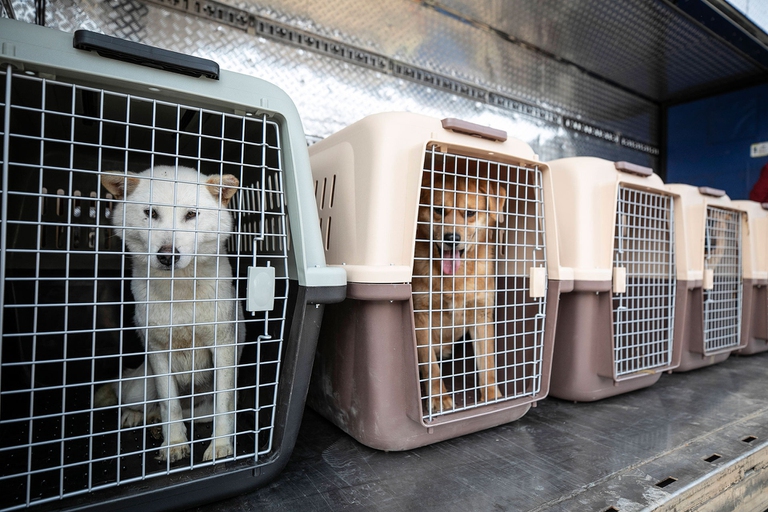https://www.lifegate.it/corea-sud-divieto-carne-cane
- |
- South Korea has officially banned the dog meat industry.
- The ban will come into force in 2027, after a transition period for operators in the sector.
- Animal rights organizations have been fighting for this result for some time.
The National Assembly of South Korea, on Tuesday 9 January 2024, complied the promise made to animal rights organizations at the end of 2023.By passing a law that bans, once and for all, the dog meat industry.The ban will come into force from 2027 and will provide heavy monetary fines, or even imprisonment, for violators.
What does the ban on dog meat mean in South Korea?
The consumption of dog meat, which has become culturally unacceptable in much of the world, in Asia it still exists.And it involves every year the killing of thirty million dogs across the continent, of which about one million are in South Korea.In a country where there are around six million dogs welcomed into families as pets, however, this supply chain is increasingly marginal and criticized by the population.So much so 86 percent of people interviewed for a recent survey say they have no intention of consuming dog meat in the future.
Strengthened by the support of citizens, animal rights organizations have been fighting for a ban for some time.Which, in the end, the National Assembly he approved.After a transition period necessary to reconvert the industry, starting from 2027 will be Breeding, slaughtering and selling dogs and dog meat for human consumption is prohibited.There sanction it amounts to around 14 thousand euros for breeding and sale and rises to around 20,700 euros, or up to three years of imprisonment, for slaughter.

Three years to close or reconvert businesses
To accompany the transition of the sector, the government will offer farmers, slaughterhouses and restaurants the opportunity to ask for compensation.After that, it will support them in closing or reconverting their business.NGOs have also been active in this direction for some time:starting from 2015, the Humane Society International itself has helped eighteen farmers to change sectors, dedicating themselves for example to cultivation.
“This is a historic moment.I never thought in my lifetime I would see a ban on the cruel dog meat industry in South Korea, but this historic victory for animals is a testament to the passion and determination of our movement." declares Jung Ah Chae, executive director for South Korea of the animal rights organization Humane society international.
